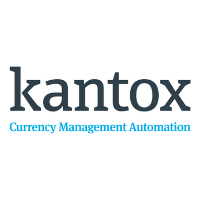CFO Perspectives: 3 ways CFOs can use currencies to boost their business’s value
05-07-2022 | treasuryXL | Kantox | LinkedIn |
As a CFO, you are aware of the benefits of FX hedging for treasury. However, are you also aware of the macro-level advantages for your company and its value?
A new CurrencyCast series has just been introduced by Kantox. They examine five ways that efficient currency management may benefit your entire business in the first episode of their CFO Edition miniseries, including how to incorporate it into your strategy and how to decrease cash flow fluctuation. Watch below the video or read the corresponding blog.
In the first edition of CFO Perspectives, we’ll draw from our work with CFOs to explore three ways senior finance executives can make currency management a winning growth and cost-saving strategy for their business.
Looking at the concerns expressed by CFOs in most risk management surveys, a number of familiar themes seem to reoccur: the importance of cash flow forecasting and monitoring, the centrality of FX risk management and the ongoing digitisation of treasury processes
Yet, this picture is far from complete.
Ultimately, among the tasks assigned to CFOs, there is the need to make a contribution toward enhancing the value of the business. But what is the role —if any— played by currency management in that regard? Answering this question allows us to single out three strategic contributions of currency management that CFOs should prioritise.
Value and FX hedging: time for a reassessment
Does currency management create value? The traditional view has been ambivalent: a ‘glass half full, half empty’ kind of appraisal. While the benefits of hedging FX have never been in dispute, the problem lies with the perceived high costs of currency management.
This is precisely where things are changing—and quite fast. Digital, API-based technology is putting to rest the notion that currency management is always a costly, resource-intensive task. Meanwhile, Multi-Dealer Platforms (MDPs) such as 360T, embedded in these solutions, sharply reduce trading costs.
CFOs: three strategic contributions of currency management
(1) Create opportunities for growth
Feeling concerned about exchange rate risk, managers may neglect the growth opportunities that come from ‘embracing currencies’. Buying and selling in more currencies allow firms to capture FX markups on the selling side while avoiding markups on the contracting side. Two examples will suffice:
(a) On the selling side: In e-commerce setups, currencies can be leveraged to increase direct, high-margin sales on company websites with many payment methods. Multi-currency pricing is the secret weapon for reducing cart abandonment, which still stands at about 77% globally.
(b) On the buying side: Buying in the currency of their suppliers allows firms to (1) Avoid inflated prices charged by suppliers who seek to manage their own FX risk; (2) Widen the range of potential suppliers by putting them in competition; (3) Obtain extended paying terms.
By taking FX risk out of the picture, currency management enables firms to reap these and other margin-boosting benefits of using more currencies in their day-to-day business operations. Ultimately, it is about removing the disincentives that prevent firms from ‘embracing currencies’.
(2) Provide more informative financial statements
Informative financial statements allow investors to assess the quality of management by removing noise from the process. To the extent that the variability in net income is perceived as a measure of management quality, effective currency hedging creates a sense of discipline in the eyes of investors.
The good news for CFOs is that technology is making great strides in cost-effectively managing the accounting-related aspects of currency management. Here are two examples:
- Balance sheet hedging. Automated micro-hedging programs for balance sheet items take the impact of FX gains and losses out of the picture, as invoices are hedged with great precision.
- Traceability and Hedge Accounting. The perfect end-to-end traceability made possible by automated solutions eases the costly and time-consuming process of compiling the required documentation for Hedge Accounting.
(3) Lower the cost of capital
Companies can reduce cash flow variability thanks to a family of automated hedging programs and combinations of hedging programs, including layered hedging programs that make it possible to maintain steady prices in the face of adverse currency fluctuations.
In challenging times, when the availability of external financing at a reasonable cost is scarce —an all too common occurrence in years of pandemics and wars—reduced cash flow variability makes it possible for companies to execute their business plans and meet all cash commitments.
An impaired capacity to raise financing has implications in terms of valuation, especially for smaller businesses. This ‘cost’ has been variously measured, with some estimations ranging from 20% to 40% of firm value. Currency management enhances the capacity to raise finance and, by extension, lowers the cost of capital and boosts firm valuation.
A wide range of opportunities to create value
We have singled out three major contributions of currency management in terms of creating value for the business: (1) stimulating growth while protecting and enhancing profit margins; (2) lowering the variability of cash flows; (3) presenting more informative financial statements. We can mention even more benefits:
- Taxation is optimised as smoother earnings reduce the tax burden when higher levels of profits are taxed at a higher rate.
- Capital efficiency is raised when pricing with the FX rate improves the firm’s competitive position without hurting budgeted profit margins.
While most of these advantages have been known by CFOs for many years, there is a new factor to consider: they can be implemented with Currency Management Automation solutions that remove most of the resource-consuming, repetitive and low-value tasks performed by the finance team, eliminating unnecessary operational risks along the way.
With an added bonus: by leveraging currencies, CFOs have the opportunity to take decisive steps in terms of digitisation. According to a recent HSBC survey, digitisation is seen as the most positive factor by 84% of CFOs overall, as they expect investments in digital technology to have a “positive impact on their business”, with more than half of them expecting it to give the business model “a large boost”.
The time to act is … now!










